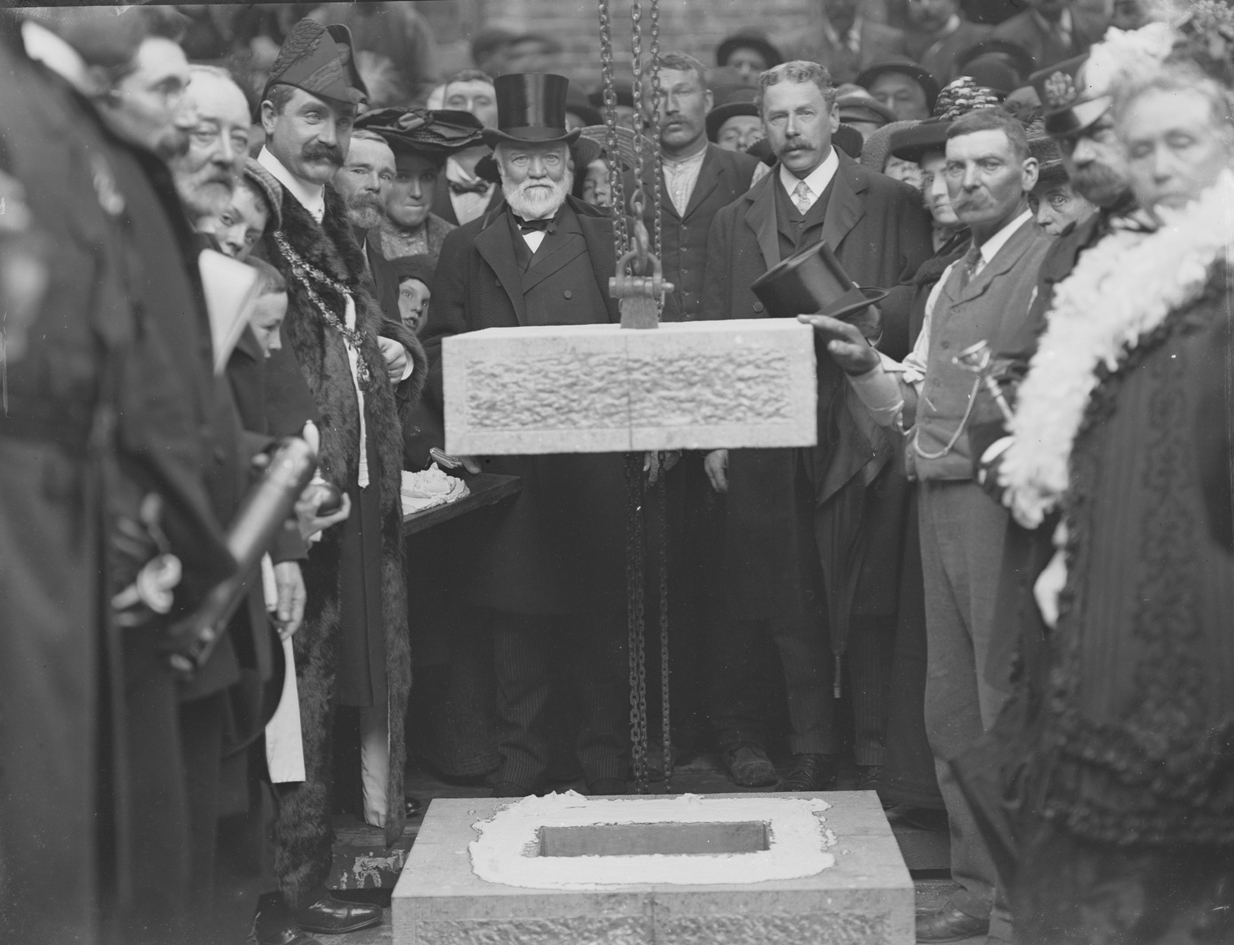Andrew Carnegie – the man who built libraries – dies aged 83
New York, 12 August 1919 - The death has occurred of the industrialist and philanthropist Andrew Carnegie, best known in Ireland and Britain as the man who built over 600 public libraries on these islands, including in Rathmines, Dublin, in Clouncagh, Co. Limerick and Waterford City Library. The 83-year-old Carnegie died yesterday from bronchial pneumonia in Lenox, Massachusetts, in the United States.
Born in Dunfermline, Scotland, the son of a master weaver, Andrew Carnegie emigrated to the United States in 1848, settling in Pittsburg where he became a bobbin-boy in a cotton mill earning 5s a week. He progressed to become a telegraph messenger boy and then an operator before being offered a position in the Pennsylvania Railway Company. However, it was the steel industry in which he made his fortune – through the operations of the Carnegie Steel Corporation, which was founded in 1892.
It has been estimated that Carnegie gave away £60m to good causes over the course of his life. He provided millions in endowments to educational institutions, notably in Scotland and in Birmingham, where he is credited with helping found Birmingham University. He purchased Lord Acton’s library of 100,000 volumes and presented it to Lord Morley, who gave it to the University of Cambridge. He also funded the construction of the great music hall in New York city which bears his name.
Mr Carnegie has stated that the principal reason for the distribution of his great wealth was to assist in the spread of knowledge, the encouragement of self-help and the implanting of ideas of citizenship in the minds of the rising youth.
For his generosity, Carnegie was widely honoured and received the freedom of many cities, including Belfast.
Mr Carnegie is survived by his only daughter, Margaret.
[Editor's note: This is an article from Century Ireland, a fortnightly online newspaper, written from the perspective of a journalist 100 years ago, based on news reports of the time.]





















